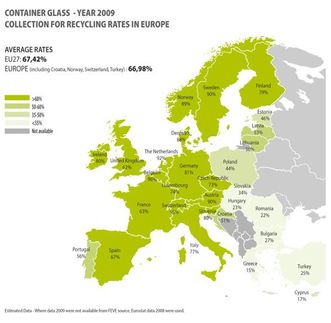The European plastics industry - growth and increased recycling in challenging times
Advertisement
The European plastics industry saw a 5.6% growth in consumption between 2001 and 2003, despite the global economic downturn, the outbreak of war in the Middle East and highly volatile crude oil and petrochemical feedstock prices, according to this year's report released by PlasticsEurope (formerly known as APME).
The study also shows recycling of plastics increased by 11% between 2001 and 2002, with a similar increase in 2003, maintaining the mechanical recycling rate of about 14% in 2003. There was also an overall increase in the amount of plastics waste recovered across all applications. The amount of plastics going to landfill only increased slightly between 2001 and 2003 - plastics waste is effectively being decoupled from the growth in consumption and associated waste generation. In fact, overall volumes of plastics waste sent to landfill in Western Europe in 2003 are estimated to be at the same level as in 1993. These results highlight the continuing popularity of plastics, which are increasingly recognised as one of the most energy efficient and flexible materials available to society, according to Neil Mayne, Director of Environmental Affairs:
"Despite tough times, plastics are still the material of choice for modern society. It is estimated that if plastics were to be replaced by more traditional materials where possible across Western Europe, approximately 10% more energy would be required. This is the equivalent of about 25 millions tones of crude oil or 105 million tones of CO2 greenhouse gas emissions. The use of lightweight or insulating plastics results in dramatic energy savings during use that would otherwise be lost if other more traditional materials were used."
Other news from the department business & finance

Get the chemical industry in your inbox
By submitting this form you agree that LUMITOS AG will send you the newsletter(s) selected above by email. Your data will not be passed on to third parties. Your data will be stored and processed in accordance with our data protection regulations. LUMITOS may contact you by email for the purpose of advertising or market and opinion surveys. You can revoke your consent at any time without giving reasons to LUMITOS AG, Ernst-Augustin-Str. 2, 12489 Berlin, Germany or by e-mail at revoke@lumitos.com with effect for the future. In addition, each email contains a link to unsubscribe from the corresponding newsletter.




























































